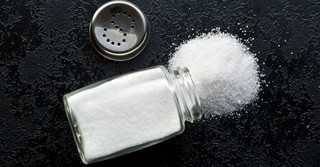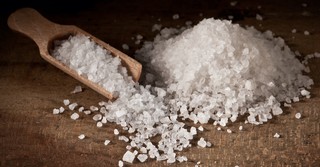- Recent Translations
- All Translations
Matthew 5:13
Share
Settings
Matthew 5:13 Meaning and Commentary
Ye are the salt of the earth
This is to be understood of the disciples and apostles of Christ; who might be compared to "salt", because of the savoury doctrines they preached; as all such are, which are agreeable to the Scriptures, and are of the evangelic kind, which are full of Christ, serve to exalt him, and to magnify the grace of God; and are suitable to the experiences of the saints, and are according to godliness, and tend to promote it: also because of their savoury lives and conversations; whereby they recommended, and gave sanction to the doctrines they preached, were examples to the saints, and checks upon wicked men. These were the salt "of the earth"; that is, of the inhabitants of the earth, not of the land of Judea only, where they first lived and preached, but of the whole world, into which they were afterwards sent to preach the Gospel.
But if the salt have lost its savour, wherewith shall it be salted?
The "savour" here supposed that it may be lost, cannot mean the savour of grace, or true grace itself, which cannot be lost, being an incorruptible seed; but either gifts qualifying men for the ministry, which may cease; or the savoury doctrines of the Gospel, which may be departed from; or a seeming savoury conversation, which may be neglected; or that seeming savour, zeal, and affection, with which the Gospel is preached, which may be dropped: and particular respect seems to be had to Judas, whom Christ had chosen to the apostleship, and was a devil; and who he knew would lose his usefulness and place, and become an unprofitable wretch, and at last be rejected of God and men; and this case is proposed to them all, in order to engage them to take heed to themselves, their doctrine and ministry. Moreover, this is but a supposition;
if the salt
and proves no matter of fact; and the Jews have a saying F11, that all that season lose their savour "(hmej hgypm hnya) (xlmw) , but salt does not lose its savour". Should it do so,
it is thenceforth good for nothing, but to be cast out and to be
trodden under foot.
Salt is good for nothing, but to make things savoury, and preserve from putrefacation; and when it has lost its savour, it is of no use, neither to men nor beasts, as some things are when corrupted; nor is it of any use to the land, or dunghill, for it makes barren, and not fruitful: so ministers of the word, when they have dropped the savoury doctrines of the Gospel, or have quitted their former seeming savoury and exemplary conversations; as their usefulness is gone, so, generally speaking, it is never retrieved; they are cast out of the churches of Christ, and are treated with contempt by everyone.
F11 T. Bab. Betzah, fol. 14. 1.






